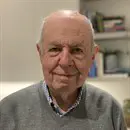
The Saudi-based Hashemite Kingdom of Palestine plan (Saudi Plan) - initially published in Al Arabiya News on 8 June 2022 - has been revised in a later document containing amendments that appear to have been made at the request of and agreed to by Jordan, the Palestine Liberation Organisation (PLO) and Hamas – the three parties most affected if the Saudi Plan is successfully implemented.
The revised version has not been published in Al Arabiya News or on any other news site. It is written in Arabic – but an English translation – a copy of which is in the writer’s possession - is very informative in clarifying certain parts of the original version which were apparently vague or unacceptable to Jordan, the PLO and Hamas.
The Saudi Plan calls for Jordan, Gaza and part of Judea and Samaria (aka 'West Bank') to be merged into one territorial entity to be called the Hashemite Kingdom of Palestine.
This plan trashes the creation of an independent Palestinian Arab State between Israel and Jordan – the solution proposed by:
- The 2002 Arab Peace Initiative,
- The United Nations - after adopting Security Council Resolution 2334 in 2016,
- The 2020 Trump Peace Plan - and
- Jordan and the PLO since the signing of the 1993 Oslo AccordsThe major changes to the published version of the Saudi Plan made in the revised versi
on are:
The area of Judea and Samaria ('West Bank') to be included in the Hashemite Kingdom of Palestine - approximately 70% in the published version - has been reduced to about 30% in the revised version.
This concession would purportedly weaken Israel’s claim to sovereignty in the Jordan Valley – 87% of which is situated in Area C – currently under Israel’s full administrative and security control, but that is open to negotiation..
The possibility that Israel could regain sovereignty in up to 90% of Judea and Samaria ('West Bank') for the first time in 3000 years - with Jordan, PLO and Hamas consensus - is a potential game changer.
The Hashemite Kingdom of Palestine - will be under Hashemite rule. The original version did not designate who would be its ruler.
Important changes have been made in relation to Jerusalem:
The original version states:
“The formal relinquishment of any claims to Jerusalem (with an appropriate arrangement for the holy places)” will be “a key bargaining chip in Palestinian hands”.
The revised version states:
“The formal renunciation of Jerusalem (while giving the Holy Places special status)” will be a major bargaining chip in the hands of the Palestinians.”
Sole Israeli sovereignty in Jerusalem is now promised - if agreement on all other issues can be resolved.
Under the radar contact already commenced between Israel and Saudi Arabia will certainly focus on implementing the revised version - not the published version.
I reached out to the author of both the original and revised versions – Ali Shihabi – asking him to explain why his original published plan was substantially revised and not published.
I offered to publish his reasons verbatim in an article which I would submit to him to approve before publication.
Shihabi has not replied to my request.
Shihabi might be more forthcoming if contacted by any of the following - who have not even acknowledged the existence of the Saudi Plan since its original publication:
Joe Biden,
UN Secretary-General Antonio Guterres,
New York Times Op Ed writer Thomas Friedman
Any reporter with Shihabi’s cell phone number.
Private think tanks,
Israeli Non-Government Organisations,
Investigative journalists
The failure of Jordan, the PLO or Hamas to reject the Saudi Plan since its initial publication seven months ago is explained by their agreement to the changes made in the revised version.
******
Please join my Facebook Page: “Hashemite Kingdom of Palestine supporters”
Author’s note: The cartoon — commissioned exclusively for this article — is by Yaakov Kirschen aka “Dry Bones”- one of Israel’s foremost political and social commentators — whose cartoons have graced the columns of Israeli and international media publications for decades.
